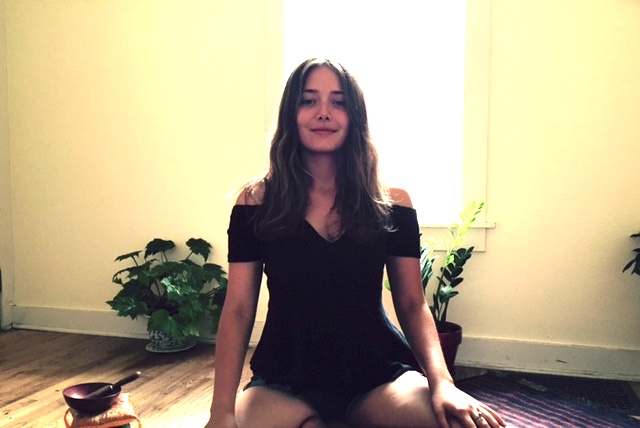
Sometimes, we have painful thought patterns that go round like a loop, and we wonder how we’re ever going to be free from them.
We can think that we have it worse than others—and maybe sometimes that’s true. However, when it comes to healing, the thing that matters is owning our own stories.
Eckhart Tolle talks about disidentifying with our minds, and I do believe this is important if we are to come out the other side of our troubles. I have also heard it said that who we are is “the watcher of our thoughts.” I am certainly starting to believe this.
However, there’s also the other side of the coin, in which people can use these teachings to avoid feeling pain—until it becomes obvious to others that something isn’t quite right. So, I believe that establishing some middle ground is important. We can’t just ignore emotions and energy blocks that have been trapped inside us for years.
First, we must understand that living constantly in our heads is not our natural state. Becoming the watcher of our thoughts does not mean that they go away, but accepting that we have our thought patterns and emotions—and observing them as they come up—can take away some of the intensity.
For example, if we have desires that we are desperate to see happen, we can observe our attachments, our fears of them not happening in our desired time frame, our sense of lack, and so on. Instead of letting our minds run a riot with anxiety, we can stand back and become the watcher of how our stories make us feel.
This is not to discount our stories and feelings—because, sometimes, it is perfectly understandable for us to feel badly about something. However, it is better to use our stories to help others, rather than to stay bitter.
We also need to choose to open our hearts to ourselves—that includes our pain, our resistance, and our desire to get even with someone. It may not be fully possible for us to open our heart in some situations, but if that happens to you, accept that this is where you are right now.
Becoming the watcher of our thoughts will not preclude us from dealing with our stuff—and once we choose to stop letting the mind dominate our lives, there’s a fair chance that some of our sh*t will crop up. The best way I find to deal with this is to let the pain pass through me, without any attachments of how I should be healed or how it will improve my life.
Becoming the watcher of our thoughts does not have to mean spiritual bypass; instead, we can see it as an opportunity to become more at peace with ourselves. It may not happen straightaway—heck, it’s been seven years since I read The Power of Now, and only very recently is the message truly beginning to sink in. I had a lot of resistance and conditioning to undo. As Eckhart Tolle says about spiritual awakening: “Most people have to work at it.”
However, being aware of our thoughts and emotions is powerful stuff. If we can get to a place of peace within ourselves—where we’re ready to explore all the pain that is hidden within from a place of observance and acceptance—things can start to shift for us. However deep our pain, whatever the source and symptoms of our fears and anxieties, we can start to observe how we feel from a place of openness.
This is not necessarily easy, and having the willingness to face ourselves and our demons does take courage. We may need the help of a therapist in order to work through some difficult stuff, and there is nothing wrong with that. Whatever route we choose comes down to us. There may be something in our lives that is too painful to face right now—which isn’t going to be healed by disidentifying from the mind.
Some things take deep inner work.
We can use even our suffering and resistance to help us get to a place of more inner peace—because sometimes, it’s easier to surrender and let go when you are up against it. Start from where you’re at right now. I would encourage you, if possible, to become “the awareness” of your thoughts and emotions, without judging them.
You may find that underneath the surface, the real you is waiting to be unleashed.
~
~
~
Author: Andy Bowker
~
~
Author: Andy Bowker

No comments:
Post a Comment